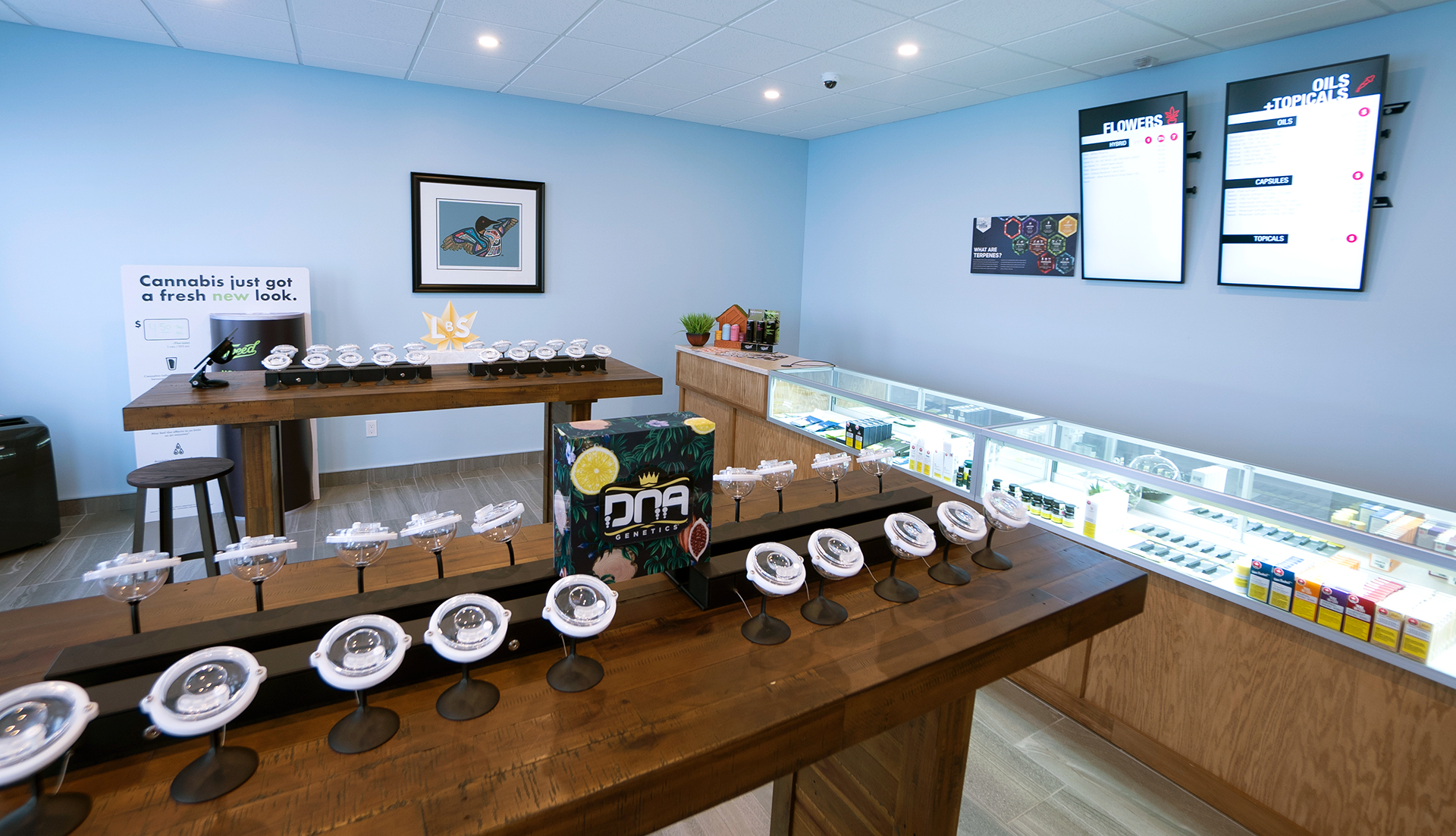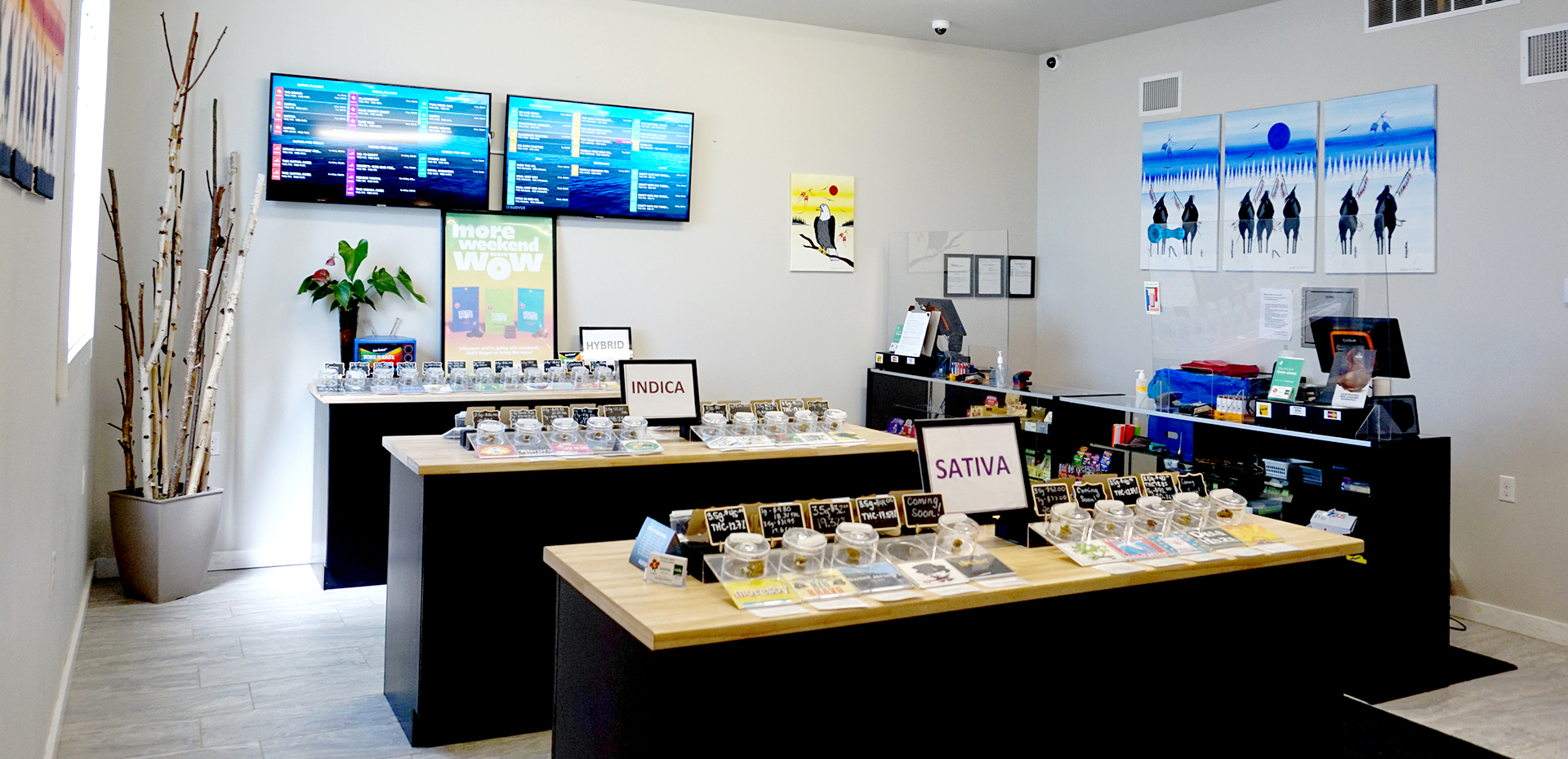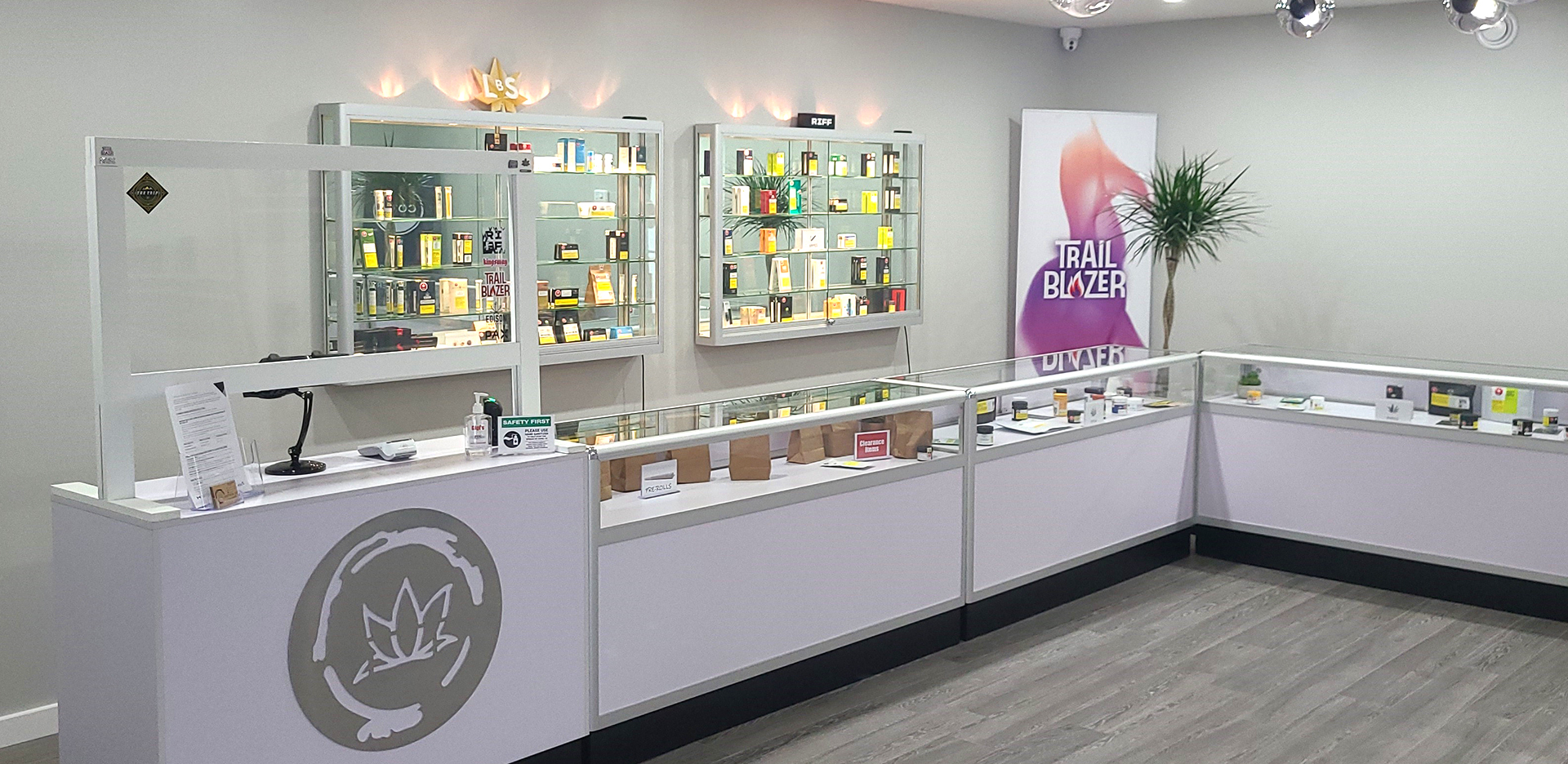This month, we’re checking in with three North Bay retailers about opening and operating their businesses on Indigenous land and what makes them unique.
Ontario’s first Indigenous-owned cannabis retail stores have opened their doors on the Nipissing First Nation land with full support from the local Nbisiing Anishinaabeg people and First Nation leaders.
Before joining the regulated retail cannabis industry, the Nipissing First Nation Council consulted with the local community through a series of open discussions, surveys and meetings. Together, they crafted the rules and guidelines for how the cannabis industry would operate on their land. This exciting precedent resulted in three brands that have strong ties to the community, and each serve it in their own special way.
Cheerful Charlie’s in North Bay, Ontario

The local First Nation Council was eager to assist Indigenous retailers in getting into the cannabis industry quickly and helped Cheerful Charlie’s get their foot in the door by ensuring the business maintains a strong focus on cannabis health and safety within the community. Named for its good-natured owner, Cheerful Charlie’s Cannabis Co. is inspired to take customer education to the next level. “We know our bud strains,” says retail manager Jason Fitzpatrick.
While the shop’s knowledgeable team is always available to help customers make informed purchases, in-store education and product displays encourage self-service and assist shoppers in discovering new products.
For Cheerful Charlie’s, it’s important not only to share their knowledge with customers but also to inspire other First Nation people who may be considering opening a shop on Indigenous land. “I’m not sure other First Nations would believe they could compete [with other stores], but we’re living proof that it is possible, and we are turning a profit. We want others to know it can work,” says owner Charlie Avery.
Kana Leaf in North Bay, Ontario

The first Indigenous-owned cannabis shop to receive Retail Store Authorization on a First Nation reserve in Ontario, Kana Leaf opened its doors in early 2020. Serving three central First Nation communities, this family owned and operated cannabis retail store wants to be known for providing convenient access to a diverse range of products available within the regulated cannabis market.
Kana Leaf worked closely with the community’s leadership council to adapt the locally established Nipissing First Nation Cannabis Act. Through collaboration, proposed changes—to bring edible 2.0 products into stores and lower the First Nation’s legal age for purchasing cannabis from 21 to 19-—were approved. These changes also helped bring this and other Indigenous-owned cannabis shops in the region into parity with the broader Ontario market.
Though their doors have been open only a few months, Kana Leaf is committed to meeting local demand and keeping their staff working during the COVID-19 pandemic. “We strive to provide the biggest selection of products within our capability, giving our customers choice and the greatest selection around,” says Garet Avery.
Northern Zen in North Bay, Ontario

Customers who enter Northern Zen Cannabis are greeted by the image of a green lotus flower encircled by a single brush stroke. These combined symbols of love and compassion represent this Indigenous-owned cannabis store’s ethos. “Without community support, we would not be here today. The council and the Nipissing band office staff promoted the opportunity to our community, and they answered with a yes,” says owner Zachary Lacelle. As a new retailer, he relied on and collaborated with local council leaders to gain community approval for cannabis retail stores in the area and to establish procedures and processes for storefronts on their land.
With a commitment to hiring First Nation members, Northern Zen is giving back to the local community that helped them open their doors just a few months ago. The shop’s business plan (required by Nipissing First Nation for the AGCO’s second licence lottery) is set up to ensure Northern Zen supports the Nipissing First Nation in the long term.

